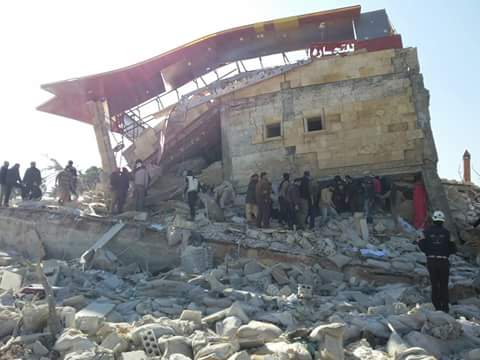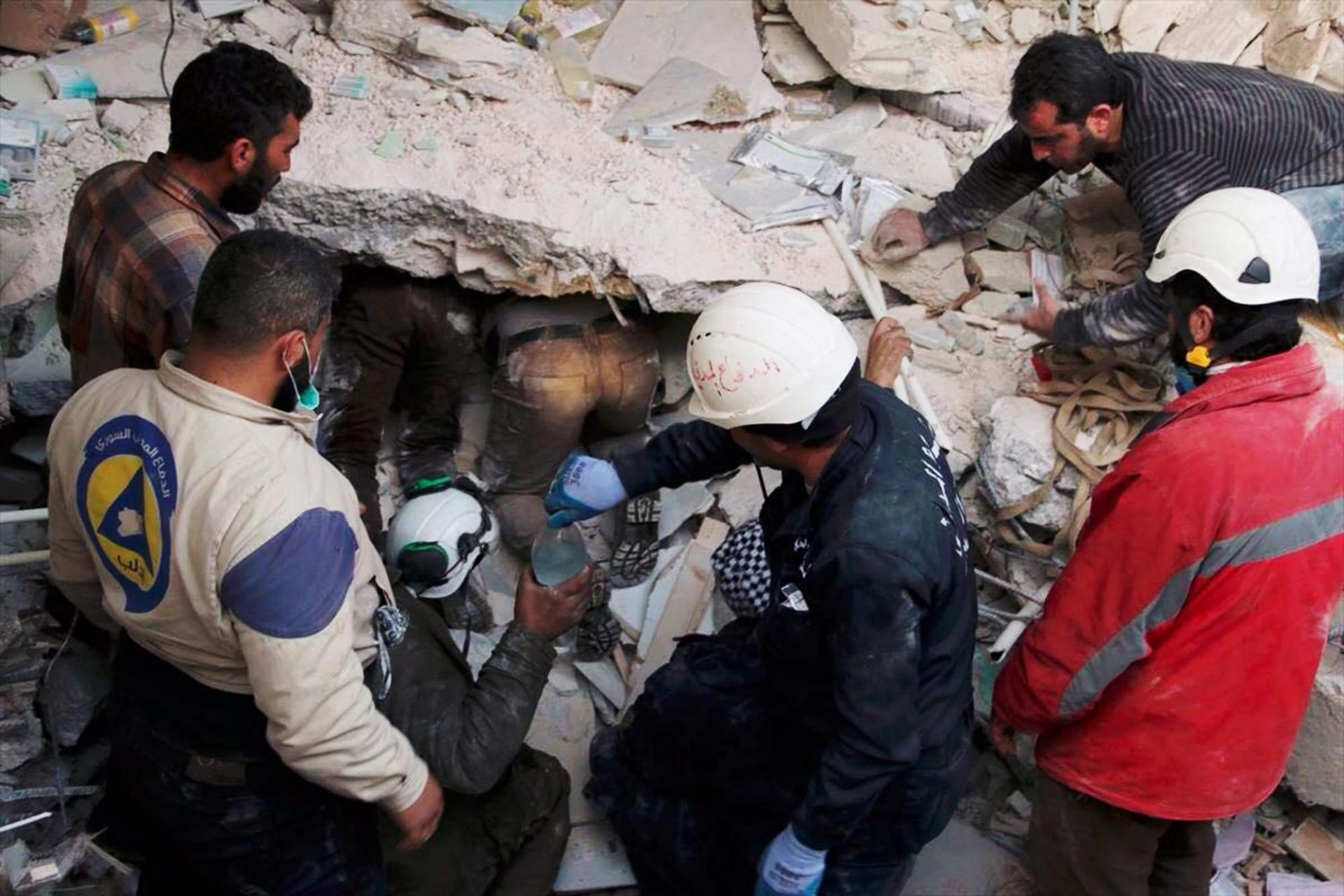Update
16 February
Operations
What are MSF’s plans to take care of the remaining patients and wounded?
We are trying to follow up where the people who were injured in the attack were taken. We know some of those who were injured received treatment in other medical facilities, but there is still a number of whom we continue to try and trace.

Will this affect any of MSF’s operations in Syria?
No. The support we offer to the remaining 152 structures will continue, and we will continue to run the six facilities we directly run in Idlib, Aleppo and Hasake. For the six facilities we run directly, we have constantly updated security protocols which aim to protect our staff, and we revise these depending on the context.
How exactly did MSF support the hospital? Did MSF pay for everything including staff?
In Syria, we support 152 structures, in the north, center, and south, with a particular emphasis on medical facilities in besieged areas. We have developed these support networks because it was extremely difficult to work in in Syria as the levels of violence are off the scale, and the front lines are fluid and unpredictable.
e do not work in areas controlled by the Islamic state group after they abducted five international members of our staff in 2014. They were released, but we have not been able to gain assurances from the group that we can operate safely in the areas they control. In areas controlled by the government of Syria, we have been trying to negotiate with Damascus for several years but have been unsuccessful.
This support varies in scope from the periodic resupply of medical material to full support. In addition to supplies and running costs, we also work remotely with the Syrian medical teams who run facilities inside, helping them with remote training and technical advice. The hospital in Maarat Al Numan was fully supported, which means in practical terms:
We paid the salaries of the staff, we supplied all medical material to keep the hospital running, we paid for fuel for the generators. In December last year, we paid for the rehabilitation of the hospital as it had to relocate because it had been attacked previously.
Was the hospital remote control?
The hospital was fully supported by MSF, but the protocols followed by the hospital were not MSF protocols, and the staff was not in contract with MSF, so we cannot say the hospital was remote controlled. It was, however, a close working relationship.
Witnessing
Who are the sources/witnesses of the information we have and share outside?
The sources for the information we have are the staff from the MSF-supported hospital.
So far we understood that there were no MSF staff members on the ground that witnessed the attacks or saw the destroyed facility?
That is correct.
Security
Who are the armed groups in that area?
There are a number of armed groups active in the area, but the main group there is Al Nusra Front, Ahrar Al-Sham, and the 13th Division.
Was the building marked as a hospital with a Red Cross, flags etc.? Could you identify the building as a hospital?
There was a small amount of signage outside the hospital that identified it as a hospital.
Could identification be a risk for the facility?
Among the local population, it was well known as a hospital. But in terms of providing geographical coordinates to warring parties, we cannot confirm that the staff provided them to warring parties. This was a choice that was left to the hospital director, as is the case with the other facilities we support. For the MSF-run facilities in Idlib and Aleppo, MSF does provide the coordinates to warring parties as we are directly responsible for the security of these facilities.
Reminder
- Five MSF-supported hospitals have been bombed since the beginning of 2016: 14 deaths among the staff.
- A total of 17 health facilities have been bombed in Syria in only 6 weeks.
- On 15 February, the team from Maarat Al-Numan hospital was bombed for the third time since the beginning of the war.
Update
When the attack occurred 25 members of staff were in the hospital; five staff members have been confirmed killed, three were recovered from the rubble with injuries and two remain missing. The other 15 members of staff - in the hospital at the time of the attack - survived. Five patients, including one child, and one caretaker were also killed in the attack.
The current 11 death toll is likely to rise as staff inside were not aware of how many patients wherein the structure when it was attacked. “When the hospital was hit, it was the time of the changeover from the night to the day shift, and the patient count had not been carried out,” Massimiliano Rebaudengo, MSF’s head of mission.
Rescue workers are still looking through the rubble and starting to clean up the area. “We do not know if the facility will reopen in another location,” said Massimiliano. MSF supports more than 150 structures inside Syria, and this support can range from regular resupply of medical material to full support, where MSF pays for salaries and all the running costs of the hospital.
15 February
An MSF-supported hospital in Idlib province in northern Syria was destroyed in an attack on Monday morning, the medical humanitarian organisation said. The hospital was hit four times in two series of at least two attacks within a few minutes of each other, and at least eight members of staff are currently missing.
“This appears to be a deliberate attack on a health structure, and we condemn this attack in the strongest possible terms,” said Massimiliano Rebaudengo, MSF’s Head of Mission.
“The destruction of the hospital leaves the local population of around 40,000 people without access to medical services in an active zone of conflict,” Massimiliano said.
The 30-bed hospital had 54 staff, two operating theaters, an outpatients department and an emergency room.
MSF has been supporting this hospital since September 2015 and covered all the needs of the hospital including the provision of medical supplies and running costs.
Read more about MSF's activities in Syria;
